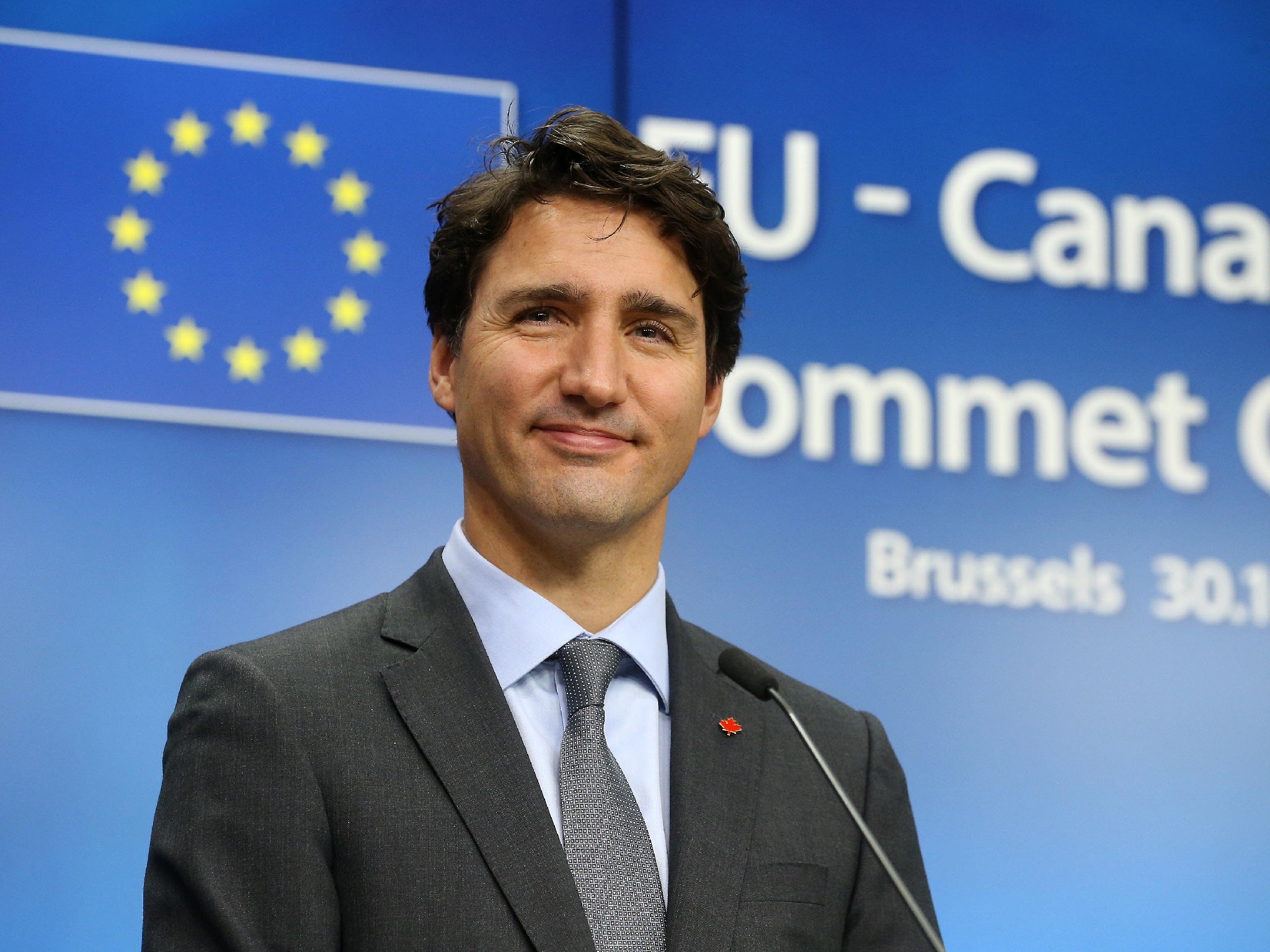European Parliament approves landmark CETA free trade deal with Canada
Critics of the agreement say the deal will ‘destroy equality’ and allow corporations to sue the Government

Your support helps us to tell the story
From reproductive rights to climate change to Big Tech, The Independent is on the ground when the story is developing. Whether it's investigating the financials of Elon Musk's pro-Trump PAC or producing our latest documentary, 'The A Word', which shines a light on the American women fighting for reproductive rights, we know how important it is to parse out the facts from the messaging.
At such a critical moment in US history, we need reporters on the ground. Your donation allows us to keep sending journalists to speak to both sides of the story.
The Independent is trusted by Americans across the entire political spectrum. And unlike many other quality news outlets, we choose not to lock Americans out of our reporting and analysis with paywalls. We believe quality journalism should be available to everyone, paid for by those who can afford it.
Your support makes all the difference.The European Parliament has approved a landmark free trade deal with Canada.
The Comprehensive Economic and Trade Agreement (Ceta) has been seven years in the making and its ratification is set to eliminate almost all trade tariffs between the European Union and Canada.
But the deal has been mired in controversy over concerns it will undermine the EU’s environmental, labour and consumer standards, with campaigners warning it will empower big business and “destroy equality”.
MEPs overwhelmingly backed the deal with 408 in favour and 254 against.
The EU has said that existing trade with Canada, which currently amounts to more than €60bn a year (£51bn), will be boosted by 20 per cent.
Hundreds of protesters gathered at the European Parliament building in Strasbourg ahead of the vote arguing the legislation will only benefit large multinational firms.
But EU trade chief Cecilia Malmstrom moved to assure EU citizens the deal would not compromise the EU’s decision making.
She said approving the deal “will not change food safety standards or any other EU requirements, only the EU institutions can do that”.
The EU has hailed the deal as a sign of international cooperation amid a creeping return of isolationist rhetoric.
The agreement follows Donald Trump’s pointed withdrawal from the Trans-Pacific Partnership on his first day in office, and has repeatedly threatened to impose tariffs on imports.
“With President Trump in the White House we see a clear change in US policy,” said Marietje Schaake of the Alliance of Liberals and Democrats who backed the deal in the European Parliament.
“Leadership for open economies and societies must come from us in Europe.
“We cannot imagine a better partner than Canada, the most European country outside the union.”
Canadian Prime Minister Justin Trudeau, who urged MEPs to ratify the deal, will address the European Parliament on Thursday.
Jean-Claude Juncker, President of the European Commission, described it as “an important milestone” and said “EU companies and citizens will start to reap the benefits the agreement offers as soon as possible”.
Conservative MEPs also welcomed the result of the vote.
Emma McClarkin, MEP for the East Midlands said the deal “sets a standard the UK can follow post Bexit”, and claimed it would benefit small businesses.
She said: “This is a great deal in terms of reducing barriers, improving access to markets, delivering for jobs and growth and making it easier for small businesses to trade in the Canadian market.”
But Mark Dearn, senior trade campaigner at anti-poverty charity War on Want, said though the deal had been approved, its future was “far from certain” due to legal hurdles and opposition from some EU countries.
He also warned the deal leaves the UK with “much to worry about in any future trade deals”.
He said: “As a key EU committee has ruled, Ceta will worsen inequality and increase social tensions across the continent. Its secret negotiation process was used to bring tar sands oil into Europe for the first time, and it sets a new precedent for locking in the privatisation of public services like the NHS.
“Worse still, Ceta’s ‘corporate court’ process destroys equality before the law and will give big business new powers to sue our government.
“The role of the UK Government on Ceta has been nothing short of appalling. It bypassed parliamentary scrutiny to sign us up to Ceta and has presented, at best, questionable claims on Ceta’s impacts on the UK which no one has ever seen.
“This leaves us with much to worry about in any future trade deals the Government negotiates, in particular with Donald Trump’s USA.”
Laurens Ankersmit, a lawyer for environmental law organisation ClientEarth, warned the European Parliament had “placed a greater value in business interests than a commitment to the rule of law”.
He added: “Unfortunately, Ceta is not a progressive agreement. It offers businesses a great deal, including the ability to sue governments without any strings attached. There are no obligations for investors, the commitments in the environmental chapter are not enforceable and the exceptions clauses necessary to safeguard decision-making in the public interest are completely outdated.”
Despite the conclusive vote, Ceta is not yet a done deal. The Netherlands still has the power to block the plan if it decides to hold an advisory national referendum on the agreement, and the country votes against it.
Join our commenting forum
Join thought-provoking conversations, follow other Independent readers and see their replies
Comments